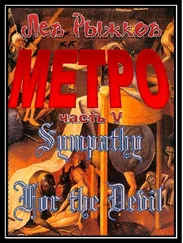“Yes, sir.”
“We’ll tell your mother we couldn’t find it. If she asks. If she doesn’t ask, we won’t tell her anything.”
“No, sir, we won’t.”
And she didn’t and we didn’t and that’s the way it was.
That day in the woods is eighty-one years gone, and for many of the years in between I have never even thought of it… not awake, at least. Like any other man or woman who ever lived, I can’t say about my dreams, not for sure. But now I’m old, and I dream awake, it seems. My infirmities have crept up like waves which will soon take a child’s abandoned sand castle, and my memories have also crept up, making me think of some old rhyme that went, in part, “Just leave them alone/And they’ll come home/Wagging their tails behind them.” I remember meals I ate, games I played, girls I kissed in the school cloakroom when we played Post Office, boys I chummed with, the first drink I ever took, the first cigarette I ever smoked (cornshuck behind Dicky Hammer’s pig-shed, and I threw up). Yet of all the memories, the one of the man in the black suit is the strongest, and glows with its own spectral, haunted light. He was real, he was the Devil, and that day I was either his errand or his luck. I feel more and more strongly that escaping him was my luck-just luck, and not the intercession of the God I have worshipped and sung hymns to all my life.
As I lie here in my nursing-home room, and in the ruined sand castle that is my body, I tell myself that I need not fear the Devil-that I have lived a good, kindly life, and I need not fear the Devil. Sometimes I remind myself that it was I, not my father, who finally coaxed my mother back to church later on that summer. In the dark, however, these thoughts have no power to ease or comfort. In the dark comes a voice which whispers that the nine-year-old boy I was had done nothing for which he might legitimately fear the devil either… and yet the Devil came. And in the dark I sometimes hear that voice drop even lower, into ranges which are inhuman. Big fish! it whispers in tones of hushed greed, and all the truths of the moral world fall to ruin before its hunger. Biiig fiiish!
The Devil came to me once, long ago; suppose he were to come again now? I am too old to run now; I can’t even get to the bathroom and back without my walker. I have no fine large brook trout with which to propitiate him, either, even for a moment or two; I am old and my creel is empty. Suppose he were to come back and find me so?
And suppose he is still hungry?
The Power of Speech by Natalie Babbitt
A lot of people believe that once a day every goat in the World has to go down to Hell to have his beard combed by the Devil, but this is obvious nonsense. The Devil doesn’t have time to comb the beards of all the goats in the World even if he wanted to, which of course he doesn’t. Who would? There are far too many goats in the first place, and in the second place their beards are nearly all in terrible condition, full of snarls, burrs, and dandelion juice.
Nevertheless, whether he wants to comb their beards or not, the Devil is as fond of goats as he is of anything, and always has one or another somewhere about, kept on as a sort of pet. He treats them pretty well too, considering, and the goats gives back as good or as bad as they get, which is one reason why the Devil likes them so much, for goats are one hundred percent unsentimental.
Now, there was a goat in the World once that the Devil had his eye on for some time, a great big goat with curving horns and a prize from every fair for miles around. “I want that goat,” said the Devil to himself, “and I mean to have him even if he has to be dragged down here by his beard.” But that was a needless thing to say, and the Devil knew it, for animals, and especially goats, are nothing at all like people when it comes to right and wrong. Animals don’t see much to choose between the two. So, Heaven or Hell, it’s all one to them, especially goats. All the Devil had to do was go up there, to the cottage that the goat called home, and lead him away.
The only trouble was that the old woman who owned the goat was no dummy. She knew how much the Devil liked goats and she also knew how much he hated bells. So she kept the goat-whose name was Walpurgis-tied up to a tree in her yard and she fastened a little bell around his neck with a length of ribbon. Walpurgis hated bells almost as much as the Devil did; but there was no way he could say so and nothing he could do about his own bell except to stand very still in order to keep it from jangling. This led some passers-by to conclude that he was only a stuffed goat put there for show and not a real goat at all. So many people came up to the old woman’s door to ask about it that at last she put up a sign which said: THIS IS A REAL GOAT. And after that she got a little peace and quiet. Not that any of it mattered to Walpurgis, who didn’t give a hoot for what anybody thought one way or another.
The Devil didn’t care what anybody thought either. But he still wanted the goat. He turned the whole problem of the bell over in his mind, considering this solution and that, and at last, hoping something would occur to him, he went up out of Hell to the old woman’s door to have a little talk with her. “See here,” he said as soon as she answered his knock. “I mean to have your goat.”
The old woman looked him up and down, and wasn’t in the least dismayed. “Go ahead and take him,” she said. “If you can do that, he’s yours.”
The Devil glanced across the yard to where Walpurgis stood tied up to the tree. “If I try to untie him, that bell will ring, and I can’t stand bells,” he said with a shudder.
“I know,” said the old woman, looking satisfied.
The Devil swallowed his annoyance and tried a more familiar tack. “I’ll give you anything you want,” he said, “if you’ll go over there and take away that wretched bell. I’ll even make you Queen of the World.”
The old woman cackled. “I’ve got my cottage, my goat, and everything I need,” she said. “Why should I want to buy trouble? There’s nothing you can do for me.”
The Devil ground his teeth. “It takes a mean mind to put a bell on a goat,” he snapped. “If he were my goat, I’d never do that. I’ll bet a bucket of brimstone he hates that bell.”
“Save your brimstone,” said the old woman. “He’s only a goat. It doesn’t matter to him.”
“He’d tell you, though, if he could talk,” said the Devil.
“May be,” said the old woman. “I’ve often wished he could talk, if it comes to that. But until he can, I’ll keep him any way I want to. So goodbye.” And she slammed the door between them.
This gave the Devil the very idea he was looking for. He hurried down to Hell and was back in a minute with a little cake into which he had mixed the power of speech, and he tossed it to Walpurgis. The goat chewed it up at once and swallowed it and then the Devil changed himself into a field mouse and hid in the grass to see what would happen.
After a while Walpurgis shook himself, which made the bell jangle, and at that he opened his mouth and said a very bad word. An expression of great surprise came over his face when he heard himself speak, and his eyes opened wide. Then they narrowed again and he tried a few more bad words, all of which came out clear and unmistakable. Then, as much as goats can ever smile, Walpurgis smiled. He moved as far from the tree as the rope would allow, and called out in a rude voice: “Hey there, you in the cottage!”
The old woman came to the door and put her head out. “Who’s there?” she asked suspiciously, peering about.
“It’s me! Walpurgis!” said the goat. “Come out here and take away this bell.”
Читать дальше












